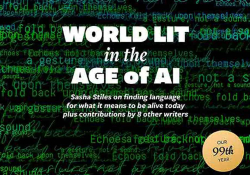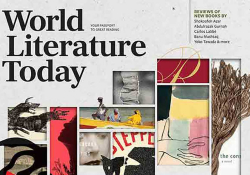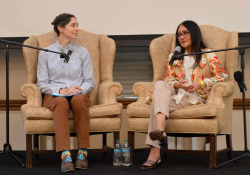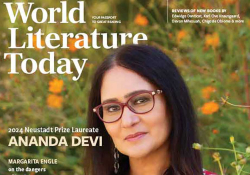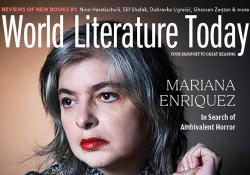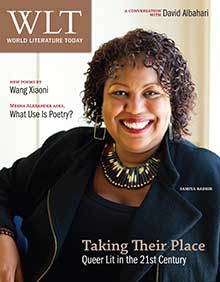Editor’s Note
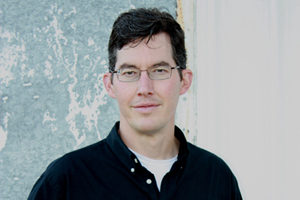 When does a life bend toward freedom? grasp its direction? – Adrienne Rich, “Inscriptions,” 1991–95
When does a life bend toward freedom? grasp its direction? – Adrienne Rich, “Inscriptions,” 1991–95
In an essay on “The Homoerotics of Travel,” Ruth Vanita proposes mobility as a defining trope of queer literature: “If there is some truth to the adage that there are two basic plots—person leaves home, and stranger comes to town—it is even truer that stories about same-sex desire involve selves changed through travel.
. . . Ideas about same-sex desire have circulated between cultures throughout recorded history and cross-fertilized one another. . . . When people cross borders, their identities change” (The Cambridge Companion to Gay and Lesbian Writing, ed. Hugh Stevens, 2011). Many of the canonical authors of literary modernism embody such mobility—think Proust (with Reynaldo Hahn) in Venice, Lorca (dreaming of Walt Whitman) in New York, Cather (with Edith Lewis) in Taos, Bishop (with Lota Soares) in Rio.
Against this centrifugal, liberating movement, however, the public discourse surrounding homosexuality remains characterized by sociocultural, civil, and legal constraints. Here in the United States, the debate surrounding gay rights reached fever pitch over the summer, peaking when the Supreme Court found section 3 of the Defense of Marriage Act (DOMA) unconstitutional and, in the Prop 8 case, cleared the way for same-sex marriages to resume in California. At the local level, when the Human Rights Commission in Norman, Oklahoma, asked the city council to issue a proclamation recognizing October 2010 as Gay, Lesbian, Bisexual, and Transgender History Month, supporters and opponents of gay rights argued for three hours before the city council (which ultimately passed the proclamation). One citizen trotted out the usual canards about a gay agenda “infiltrating” our schools, leading to a slippery slope down which Norman youth would undoubtedly be “recruited” into a life of homosexual depravity, and argued against construing gay rights as civil rights. (That same individual sent an email to the parents of our daughter’s kindergarten class during the 2010 midterm elections with voting recommendations from the Oklahoma Conservative Political Action Committee, purporting to “get to the truth about the judges” suspected of judicial activism and rating candidates by the so-called New American’s [sic] Freedom Index.) Tragically, seven days after attending the city council meeting, a gay teenager from Norman, Zach Harrington, committed suicide. His parents told reporters that the “toxic” debate at the September 28 city council meeting must have been a contributing factor in their son’s decision to take his life.
In presenting “Taking Their Place,” a special section on LGBT literature in the current issue of WLT (page 39), my editorial colleagues and I are mindful of the persistent (and sometimes tragic) homophobia that exists in the world, but we hope readers will be inspired by the literary “freedom index” represented in these pages. As I was translating Abdellah Taïa’s story “Turning Thirty” for the special section (page 45), I was struck by the archetypal themes of his narrative—sickness, death, rebirth, forbidden love, truth, happiness, naming, freedom, madness, fear, solitude. For many queer writers, like Taïa, truth is often equated with unhappiness; when I asked him about this paradox, he replied: “Around me and within me, my sense of dissatisfaction is permanent. And a certain kind of sadness, unhappiness, and eternal solitude often accompanies it. I don’t control those feelings: they overtake me, despite myself. In an objective sense, however, it is often this type of doubt, this abjection, this collapse that provides revelations—and writing: one ends up understanding things. From being alone, self-isolating, and plunged into the past, truth emerges—a truth that wants to be released, written, transformed.”
If it is true that identities change when people cross borders, it must follow that literature freed from borders, like the queer poetry and fiction included in this issue of WLT, can transform unnameable truths into written—and spoken—beauty.
Editorial note: Special thanks to my colleague Marla Johnson for suggesting this issue’s special topic, to Michelle Johnson for shepherding the project, and to guest editor George Henson for bringing it to fruition.
